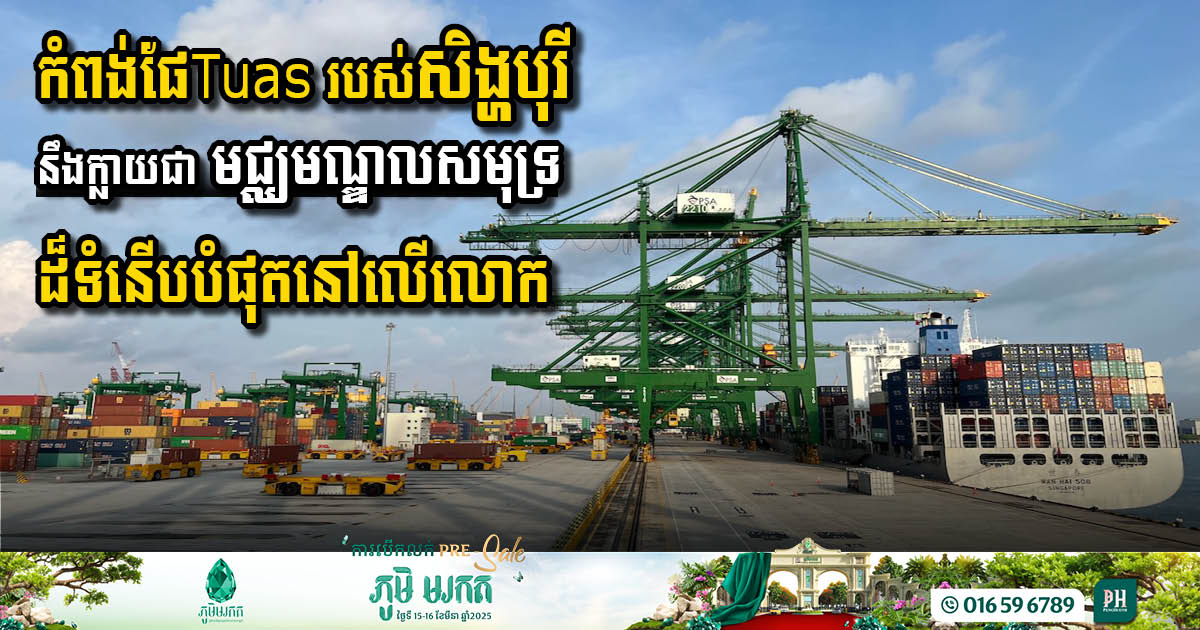Cambodia and Korea Strengthen Cooperation on Water Resources Management in Cambodia
In a significant step towards enhancing water management practices, Cambodia and South Korea have signed a memorandum of understanding (MoU) aimed at promoting cooperation in the field of water resources management. The agreement, formalized on May 6, 2025, was witnessed by His Excellency Tho Jetha, Cambodia’s Minister of Water Resources and Meteorology, and Mr. Kim […]
Kampong Thom Province’s Kampong Kor Dam Project Reaches 70% Completion
The Kampong Kor Dam Development Project, along with the Stung Thap Dam Canal, is making significant progress, with construction now approximately 70% complete, as reported by the Ministry of Water Resources and Meteorology. His Excellency Chan Sinat, Secretary of State for the Ministry, recently led a working group to evaluate the site and assess the […]
Kampot Welcomes New International Tourist Port with Grand Opening Ceremony
The long-awaited Kampot International Tourist Port officially opened today in a ceremony by Prime Minister Hun Manet. This impressive development, valued at USD 10 million, is set to significantly boost the tourism sector in Kampot Province, attracting visitors from both domestic and international markets. Situated on 4.25 hectares in Chum Kriel Village, Chum Kriel Commune, […]
Cambodia Secures USD 145 Million World Bank Loan to Boost Water Security
The Ministry of Water Resources and Meteorology, alongside the Ministry of Agriculture, Forestry, and Fisheries, has officially launched the “Improving Cambodia’s Water Security” project, backed by a substantial USD 145 million loan from the World Bank. This initiative aims to enhance water security across the nation, increase agricultural productivity, and strengthen resilience against climate-related […]
Construction on Dang Kambit Reservoir Dam in Kampong Thom Reaches 52.8%
The Dang Kambit Reservoir Dam in Sre Khsach village, Kampong Thom province, has reached a significant milestone, with 52.8% of construction completed. This progress was confirmed during a recent inspection led by HE Tho Jetha. Spanning a total length of 2,680 metres, the dam includes various elements: a 1,136-metre left earthen dam, a 306-metre […]
EU Partners with Cambodia to Enhance Energy Efficiency with €6 Million Grant
In an important stride towards sustainable industrial development, the European Union has announced a €6 million grant to boost energy efficiency within Cambodia’s industrial sector. This initiative was revealed during a productive meeting between HE Hem Vandy, Cambodia’s Minister of Industry, Science, Technology, and Innovation, and an EU delegation in Phnom Penh. The discussions concerned […]



 ខ្មែរ
ខ្មែរ







